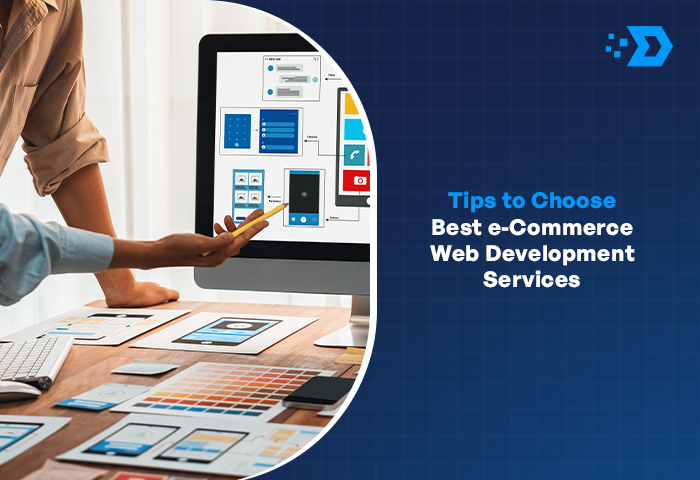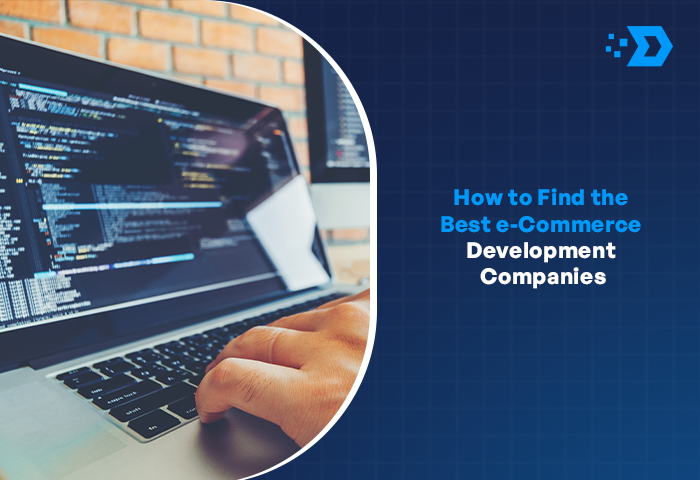Tips to Choose Best e-Commerce Web Development Services
In the ever-evolving landscape of online business, an exquisite and dependable e-commerce website is your gateway to reaching and captivating potential customers. But how do you go about choosing the finest e-commerce web development services to bring your vision to life? This blog is your compass, guiding you through the intricate process of making the right decision.
1. Peruse the Portfolio
The first step on this journey is to delve into the portfolio of the e-commerce website developer. It's akin to inspecting an artist's gallery before commissioning a masterpiece. A reputable e-commerce development company will showcase a treasure trove of successful e-commerce websites they've crafted for diverse clients across various industries. Take the time to scrutinise these creations. Examine the design, functionality, features, and user experience. Do they align with your expectations and requirements? The portfolio is a window into the developer's prowess.
2. Cost comparison
Finances are a pivotal facet of this voyage. You must weigh the prices and packages offered by different e-commerce web development services. Value for your investment is the name of the game. Some developers may charge a fixed fee for the entire project, while others may adopt an hourly or per-page billing structure. Additionally, some packages may encompass hosting, maintenance, and support, while others treat these as add-ons. Ascertain what's included in the price and select the option that harmonises with your budget and objectives.
3. Testimonials and Reviews
To gauge the reputation and reliability of an e-commerce web development service, turn to the testimonials and reviews of past clients. These narratives serve as beacons, lighting the path ahead. Seek these insights on the developer's website, their social media channels, or prominent review platforms like Google My Business, Trustpilot, or Clutch. The experiences and feedback of others who have embarked on this journey before you can be enlightening. Dive into the pool of testimonials to discern if they echo positive sentiment or raise red flags. Consider reaching out to past clients for a firsthand account of their experiences.
4. Technology and Tools
The technology and tools harnessed by the e-commerce web development service wield significant influence over your website's performance, security, scalability, and compatibility. Opt for a developer who is well-versed in the latest and most advanced technologies. Whether it's Shopify, Magento, WooCommerce, BigCommerce, or a custom-built solution, ensure it aligns with your current and future needs. Responsive web design, SEO-friendly coding, SSL encryption, CDN integration, and other best practices should be in their arsenal. Your e-commerce website's foundation is built upon the tools they employ.
5. Clear Communication
Last but certainly not least, effective communication is the glue that holds this partnership together. Before you embark on this journey, lay your cards on the table. Clearly articulate your goals, expectations, and aspirations for the e-commerce web development service. Define the features and functions you require, your design preferences, timeline, budget, and the SEO keywords that need to be woven into your content. Inquire about their processes, communication channels, project management tools, quality assurance methods, and post-launch support. Establish a seamless understanding to navigate this journey with harmony and efficiency.
6. Dive into the Details
As you venture deeper into the realm of e-commerce web development, it's crucial to pay attention to the finer details. Look beyond the surface and investigate the intricacies of the developer's approach. Are they proponents of user-centric design? Do they prioritise mobile responsiveness, ensuring your website shines on all devices? Scrutinise their code; it should not only be SEO-friendly but also adhere to industry best practices for optimal performance. Delve into their security measures: SSL encryption and robust data protection should be non-negotiable elements of their strategy. Examine their plans for content delivery. CDN integration is a vital component for seamless user experiences.
7. Scalability and future-proofing
In the world of e-commerce, evolution is constant. Your website must be agile, adapting to changing business needs and technological advancements. Choose an e-commerce web development service that doesn't just build for the present but envisions the future. Scalability is the name of the game; your site should effortlessly accommodate growth and expansion. Discuss with the developer how they plan to future-proof your website, ensuring it remains relevant and competitive as your business evolves. Think of it as constructing a digital fortress that not only withstands the test of time but emerges stronger with each passing day.
8. Support and Maintenance
The launch of your e-commerce website is just the beginning. It requires nurturing, updates, and occasional troubleshooting. Inquire about the post-launch support and maintenance offered by the developer. Will they be by your side, addressing issues and implementing improvements? A dependable e-commerce web development service is one that remains engaged even after the project's completion. Consider it a long-term partnership where they continue to fine-tune your digital presence to keep it at the forefront of your industry.
In the labyrinth of e-commerce web development services, choosing the ideal
partner may seem daunting, but it's a rewarding endeavour if you adhere to
these guidelines. Opting for a reliable, seasoned, and professional e-commerce
web development service such as RMgX Technologies can set you on a course
to attain a stunning and functional e-commerce website. Your digital empire
awaits; seize the opportunity to connect with your audience, boost sales, and
propel your business to new heights.



Comments
Post a Comment